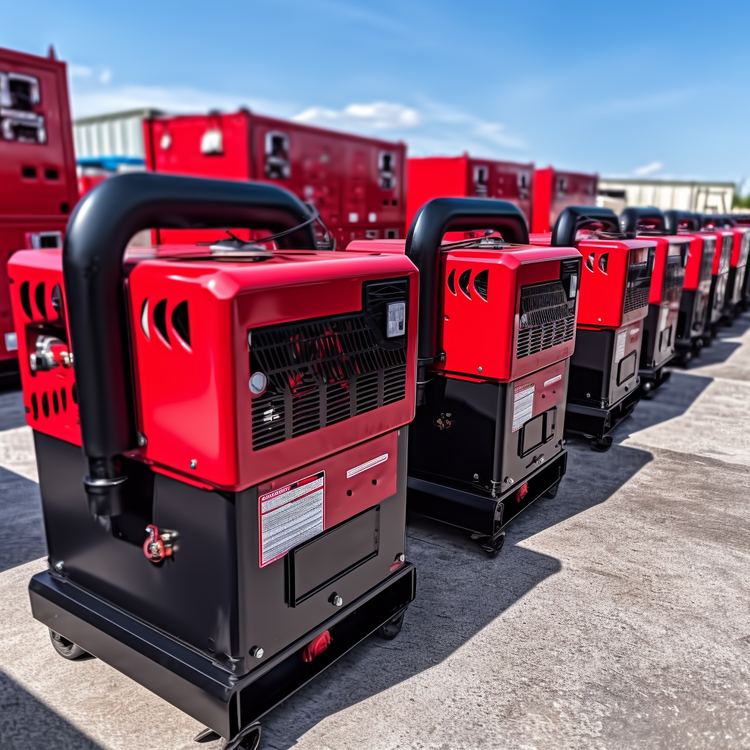Backup Power Solutions: Essential Systems for Reliable Electricity
Power generators serve as critical backup systems during outages and provide reliable electricity for remote locations. From residential standby units to industrial-grade systems, these machines convert fuel into electrical energy through various technologies. Understanding different generator types, fuel options, and applications helps businesses and homeowners select appropriate power solutions for their specific requirements.

What Are Industrial Backup Power Systems?
Industrial backup power systems are robust electrical generators designed to maintain operations during grid failures or planned maintenance. These units typically range from 20kW to several megawatts, powering entire manufacturing facilities, data centers, and critical infrastructure. Unlike portable generators, industrial systems integrate directly with facility electrical panels through automatic transfer switches, ensuring seamless power transitions within seconds of detecting outages.
Modern industrial backup systems utilize diesel, natural gas, or dual-fuel engines coupled with synchronous alternators. Diesel variants offer superior fuel efficiency and longer runtime capabilities, making them ideal for extended outages. Natural gas units provide cleaner emissions and lower operating costs when connected to municipal gas lines.
How Do Off Grid Diesel Generators Function?
Off grid diesel generators operate independently from utility infrastructure, converting diesel fuel into electrical energy through internal combustion engines. These self-contained systems include fuel tanks, cooling systems, control panels, and alternators housed within weather-resistant enclosures. Diesel engines drive alternators that produce alternating current electricity, which powers connected loads directly or charges battery banks.
Diesel generators excel in remote applications due to diesel fuel’s stability and energy density. A single gallon of diesel contains approximately 35.8 kWh of energy, significantly more than gasoline alternatives. Modern diesel generators incorporate electronic fuel injection, turbocharging, and emission control systems to optimize performance while meeting environmental regulations.
What Makes Grid Tied Solar Systems with Battery Backup Effective?
Grid tied solar systems with battery backup combine photovoltaic panels, inverters, and energy storage to provide both grid interaction and emergency power capabilities. During normal operation, solar panels generate electricity that powers loads directly while excess energy charges batteries or feeds back into the utility grid. When outages occur, the system disconnects from the grid and operates in backup mode using stored battery energy.
These hybrid systems offer multiple advantages over traditional generators. Solar energy reduces long-term operating costs, while batteries provide silent, emission-free backup power. Advanced inverter technology enables seamless transitions between grid, solar, and battery power sources. Battery systems typically provide 4-12 hours of backup power, depending on load requirements and storage capacity.
Where to Find Commercial Generators for Sale?
Commercial generators are available through authorized dealers, equipment rental companies, and online marketplaces. Authorized dealers offer new units with full warranties, installation services, and ongoing maintenance support. Major manufacturers like Caterpillar, Cummins, and Generac maintain extensive dealer networks providing local sales and service capabilities.
Used commercial generators present cost-effective alternatives for budget-conscious buyers. Industrial equipment auctions, surplus dealers, and online platforms regularly feature pre-owned units. However, used generators require thorough inspections to assess engine condition, alternator performance, and control system functionality before purchase.
| Generator Type | Provider | Power Range | Cost Estimation |
|---|---|---|---|
| Diesel Standby | Caterpillar | 20kW - 2MW | $8,000 - $500,000 |
| Natural Gas | Generac | 22kW - 150kW | $6,000 - $75,000 |
| Solar + Battery | Tesla/Enphase | 5kW - 100kW | $15,000 - $200,000 |
| Portable Diesel | Champion | 3kW - 15kW | $1,500 - $8,000 |
Prices, rates, or cost estimates mentioned in this article are based on the latest available information but may change over time. Independent research is advised before making financial decisions.
Commercial Diesel Generators: Key Considerations
Commercial diesel generators require careful sizing to match facility power demands while accounting for starting surge currents from motors and other equipment. Load analysis involves calculating both continuous running loads and momentary starting requirements. Generators should operate between 70-80% of rated capacity for optimal fuel efficiency and component longevity.
Installation considerations include fuel supply systems, exhaust routing, cooling air flow, and noise mitigation. Local building codes typically mandate minimum clearances from structures, property lines, and air intake systems. Automatic transfer switches must coordinate with utility protective devices to prevent backfeeding during maintenance or restoration activities.
Maintenance requirements for commercial diesel generators include regular oil changes, filter replacements, coolant system service, and load bank testing. Most manufacturers recommend weekly exercise cycles and monthly load tests to ensure readiness. Preventive maintenance contracts help ensure compliance with warranty requirements while maximizing system reliability.
Selecting appropriate power generation equipment depends on specific application requirements, fuel availability, environmental considerations, and budget constraints. Professional consultation helps identify optimal solutions that balance initial investment costs with long-term operational expenses and reliability needs.




